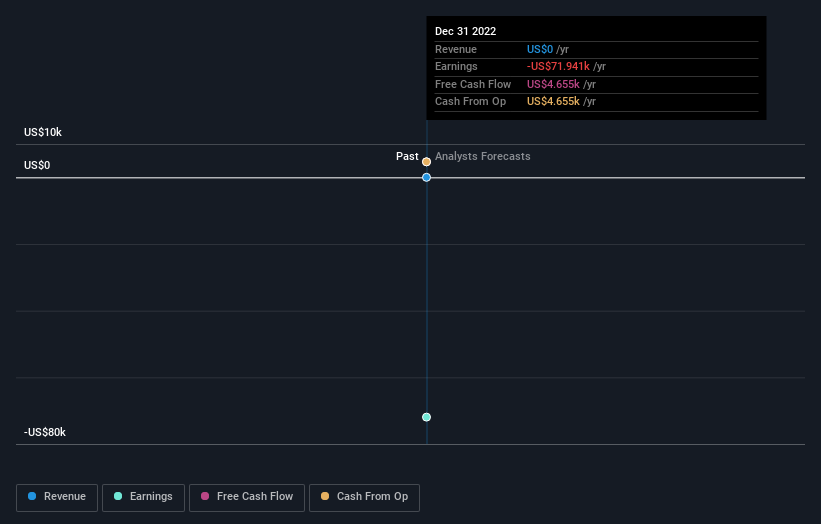Private companies own 28% of Israel Acquisitions Corp (NASDAQ:ISRL) shares but individual investors control 54% of the company
Key Insights
Israel Acquisitions' significant individual investors ownership suggests that the key decisions are influenced by shareholders from the larger public
A total of 12 investors have a majority stake in the company with 41% ownership
If you want to know who really controls Israel Acquisitions Corp (NASDAQ:ISRL), then you'll have to look at the makeup of its share registry. And the group that holds the biggest piece of the pie are individual investors with 54% ownership. Put another way, the group faces the maximum upside potential (or downside risk).
And private companies on the other hand have a 28% ownership in the company.
In the chart below, we zoom in on the different ownership groups of Israel Acquisitions.
View our latest analysis for Israel Acquisitions
What Does The Institutional Ownership Tell Us About Israel Acquisitions?
Institutions typically measure themselves against a benchmark when reporting to their own investors, so they often become more enthusiastic about a stock once it's included in a major index. We would expect most companies to have some institutions on the register, especially if they are growing.
As you can see, institutional investors have a fair amount of stake in Israel Acquisitions. This suggests some credibility amongst professional investors. But we can't rely on that fact alone since institutions make bad investments sometimes, just like everyone does. If multiple institutions change their view on a stock at the same time, you could see the share price drop fast. It's therefore worth looking at Israel Acquisitions' earnings history below. Of course, the future is what really matters.
We note that hedge funds don't have a meaningful investment in Israel Acquisitions. The company's largest shareholder is Israel Acquisitions Sponsor Llc, with ownership of 28%. Meanwhile, the second and third largest shareholders, hold 3.7% and 2.8%, of the shares outstanding, respectively.
On studying our ownership data, we found that 12 of the top shareholders collectively own less than 50% of the share register, implying that no single individual has a majority interest.
While studying institutional ownership for a company can add value to your research, it is also a good practice to research analyst recommendations to get a deeper understand of a stock's expected performance. We're not picking up on any analyst coverage of the stock at the moment, so the company is unlikely to be widely held.
Insider Ownership Of Israel Acquisitions
The definition of an insider can differ slightly between different countries, but members of the board of directors always count. Management ultimately answers to the board. However, it is not uncommon for managers to be executive board members, especially if they are a founder or the CEO.
Insider ownership is positive when it signals leadership are thinking like the true owners of the company. However, high insider ownership can also give immense power to a small group within the company. This can be negative in some circumstances.
We note our data does not show any board members holding shares, personally. Not all jurisdictions have the same rules around disclosing insider ownership, and it is possible we have missed something, here. So you can click here learn more about the CEO.
General Public Ownership
The general public -- including retail investors -- own 54% of Israel Acquisitions. With this amount of ownership, retail investors can collectively play a role in decisions that affect shareholder returns, such as dividend policies and the appointment of directors. They can also exercise the power to vote on acquisitions or mergers that may not improve profitability.
Private Company Ownership
We can see that Private Companies own 28%, of the shares on issue. It's hard to draw any conclusions from this fact alone, so its worth looking into who owns those private companies. Sometimes insiders or other related parties have an interest in shares in a public company through a separate private company.
Next Steps:
I find it very interesting to look at who exactly owns a company. But to truly gain insight, we need to consider other information, too. Be aware that Israel Acquisitions is showing 3 warning signs in our investment analysis , and 2 of those shouldn't be ignored...
Of course this may not be the best stock to buy. So take a peek at this free free list of interesting companies.
NB: Figures in this article are calculated using data from the last twelve months, which refer to the 12-month period ending on the last date of the month the financial statement is dated. This may not be consistent with full year annual report figures.
Have feedback on this article? Concerned about the content? Get in touch with us directly. Alternatively, email editorial-team (at) simplywallst.com.
This article by Simply Wall St is general in nature. We provide commentary based on historical data and analyst forecasts only using an unbiased methodology and our articles are not intended to be financial advice. It does not constitute a recommendation to buy or sell any stock, and does not take account of your objectives, or your financial situation. We aim to bring you long-term focused analysis driven by fundamental data. Note that our analysis may not factor in the latest price-sensitive company announcements or qualitative material. Simply Wall St has no position in any stocks mentioned.
Join A Paid User Research Session
You’ll receive a US$30 Amazon Gift card for 1 hour of your time while helping us build better investing tools for the individual investors like yourself. Sign up here


